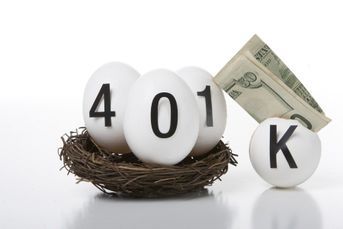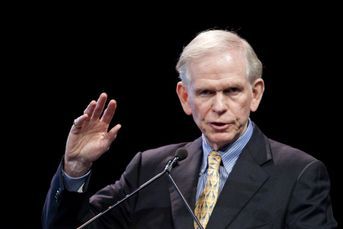Twitter IPO: Money left on the table, but that’s OK
Shares of Twitter surged 73% in their debut, the biggest IPO opening pop since 2007. Part of that was by design as management and bankers took the lessons of Facebook's botched IPO to heart. What's in store for the stock now?
The contours were familiar: A hot social-media company going public with investors baying to buy its stock. Yet the outcome of Twitter Inc.’s initial public offering was far different from Facebook Inc.’s, underscoring the delicate balancing act of pricing IPOs.
Twitter (TWTR) surged 73% to $44.90 Thursday, the biggest day-one jump for an IPO of more than $1 billion since 2007, according to data compiled by Bloomberg. The company received orders for about 30 times as many shares as it offered at the $26 IPO price, according to a person with knowledge of the matter. Comparatively, Facebook was little changed in its debut and slumped 11% the next trading day.
The dichotomy highlights the difficulty of reconciling the two main goals of an IPO: raising as much money as possible for the company while also ensuring a significant pop for investors in the first day of trading. With Facebook’s first-day flop and subsequent yearlong slump still fresh in their minds, Twitter and its bankers opted for an IPO price that would be quickly surpassed, avoiding the investor backlash that Facebook (FB) is only now recovering from.
“It’s very natural when you come into another high-profile deal like this, they’re going to err on the side of caution,” said William “Bill” Hambrecht, chairman and founder of WR Hambrecht + Co. “Nobody wants a Facebook kind of conclusion, because that just hurts everybody.”
DUTCH AUCTION
Mr. Hambrecht’s firm offers the Dutch auction method for IPOs, where a price is set by matching supply with price bids directly from prospective buyers. That approach has been used by companies including Google Inc. in its 2004 IPO.
Twitter raised $2.09 billion in its offering, including an over-allotment option. The Goldman Sachs Group Inc. led the sale, with help from firms including Morgan Stanley and JPMorgan Chase & Co. Excluding the over-allotment, they’ll share about $59.2 million for managing the IPO after accepting one of the smallest fee rates for a U.S. share sale this year, data compiled by Bloomberg show.
The shares gave up some of their first-day gains in pre-trading today and fell 2.1% to $43.97. That’s still 69% higher than the IPO price.
Jim Prosser, a spokesman for Twitter, declined to comment on the pricing techniques. Representatives for Goldman Sachs, JPMorgan and Morgan Stanley also declined to comment.
INCREASED RANGE
Before the microblogging service kicked off its road show last week with management and the underwriters, Twitter set a price range of $17 to $20. The company boosted the range to $23 to $25 on Nov. 4 after attracting more than enough interest to sell all the shares in the offering, people with knowledge of the matter said at the time. On Nov. 6, Twitter priced the shares at $26 each, above the increased range.
“Phew!” Anthony Noto, the Goldman Sachs banker who led the IPO, wrote in a message posted on Twitter after trading began.
Facebook increased the number of shares being sold and boosted the price range before its offering last year. The shares priced at the top of the increased range were almost unchanged in their debut and subsequently dropped. They didn’t return to their IPO level until August of this year. Facebook’s offering was also marred by a trading snag on the Nasdaq Stock Market.
Still, if Twitter priced the shares in its IPO at $44.90, where it closed yesterday, it would have raised an additional $1.32 billion, data compiled by Bloomberg show.
Twitter’s management and its bankers are happy with the IPO’s outcome, according to a person with direct knowledge of their thinking. While they’re not surprised the stock gained so much, because of the overhang in demand, they expect it to drop toward $30 a share during the next three weeks, this person said.
Leaving money on the table was worth it for Twitter, according to Moshe Cohen, professor of finance and economics at Columbia University.
“Pricing an IPO is a game,” Mr. Cohen said. “After Facebook, Twitter needed to price conservatively. Otherwise, the risk of what would happen had the IPO not performed well was too big.”
Twitter’s 73% jump is more than double the average pop that U.S. technology and Internet companies had in their debuts this year, according to data compiled by Bloomberg. Worldwide, it’s the biggest Day One surge for an IPO that raised more than $1 billion since Alibaba.com Ltd. in 2007, the data show.
At Thursday’s closing price, Twitter is valued at about $25 billion, or 22 times estimated 2014 sales of $1.14 billion, according to analysts’ projections compiled by Bloomberg. That compares with 11.2 times for Facebook and a price-to-sales ratio of 11.7 for LinkedIn Corp. (LNKD)
“I don’t think that where the stock trades should impact what management does,” said Deven Parekh, a Twitter investor and managing director at Insight Venture Partners. “They should just execute against their strategy. Companies can’t manage to a stock price.”
(Bloomberg News)
Learn more about reprints and licensing for this article.








